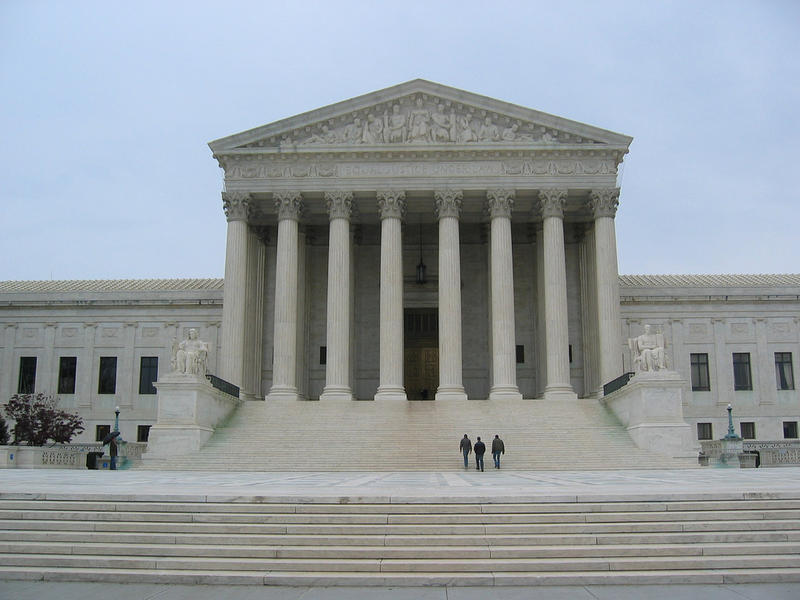On Thursday, the U.S. Supreme Court upheld two Arizona voting rules that opponents had claimed discriminated against minority voters.
One of the provisions requires voters to vote only in their precinct. The other makes it illegal for anyone other than a family member to turn in another person’s absentee ballot. In a 6-3 decision, the Court said neither provision violates the federal Voting Rights Act.
But Steve Vladeck, Supreme Court expert and professor at the University of Texas School of Law, told Texas Standard the Voting Rights Act is “a shell” of what it once was. He says the 1965 landmark legislation was severely weakened in recent years by another Supreme Court decision.
The Voting Rights Act was meant to eliminate racial discrimination in voting. Vladeck says Thursday’s court opinion could chip away at that because it will make it easier for states to put more restrictive voting provisions in place, and could disenfranchise Black voters and other historically marginalized groups.
“I think that’s exactly what today’s decision invites, which is there’s now no problem with the state adopting restrictive voting rules where the burden falls disproportionately on voters of particular racial or ethnic minority groups,” he said.
Vladeck also says states can interpret the court’s decision to mean that it’s OK to create voting rules that favor one party over another, as long as they don’t explicitly discriminate based on race. He expects lawmakers in Republican-led states to now feel emboldened to push for more restrictive voting legislation.
“The notion that that’s somehow healthier for our democratic system is one that I think is really hard to swallow,” he said.
But the court’s decision still leaves much of the burden of voting reform on Congress. Vladeck expects the Biden administration to push aggressively for expanded voting access on the federal level, including with the John Lewis Voting Rights Act. But meaningful change will likely be hard to achieve.
“The problem is that without the … razor-thin Democratic majority in the Senate being willing to get rid of the filibuster, there’s just no meaningful specter of voting rights legislation, even modest voting rights legislation, getting through this Congress,” Vladeck said.
He says the decision is a clear indication that the court now leans conservative, despite some signs to the contrary after recent decisions about the Affordable Care Act and other issues this term – something he says is “undoubtedly good” for the Republican Party.
“This is the conservative majority changing the law to reach these results,” he said.














